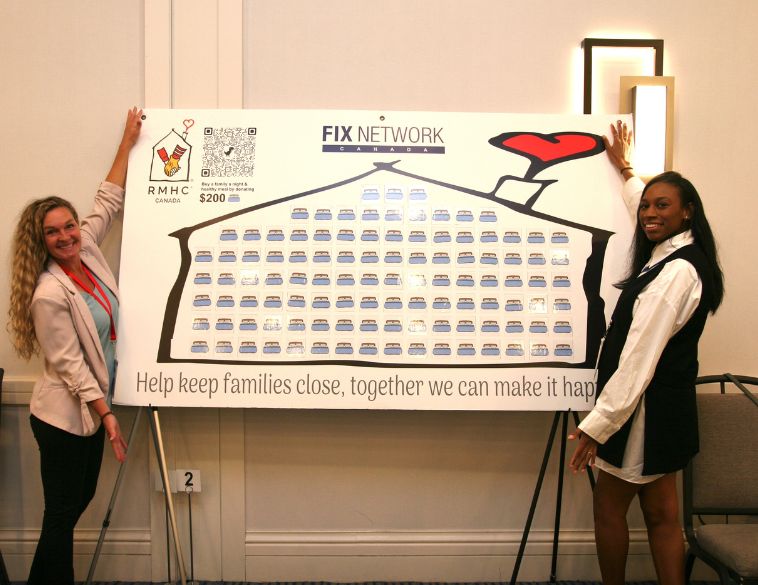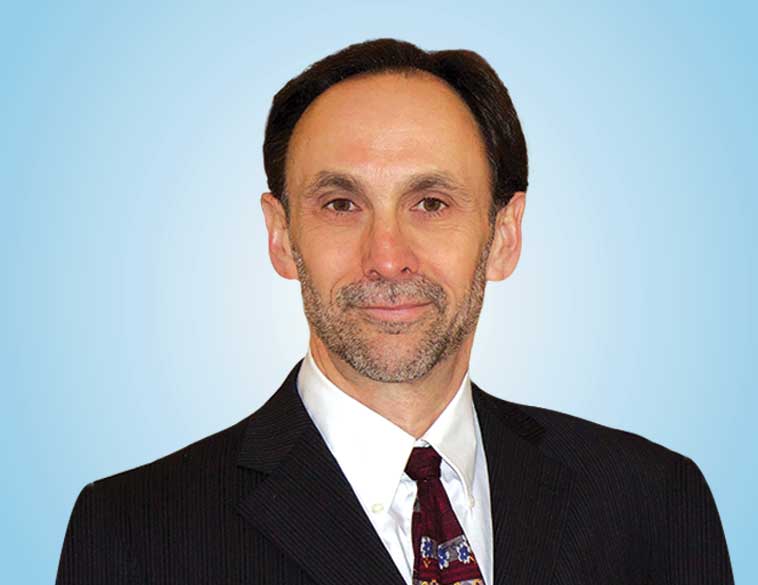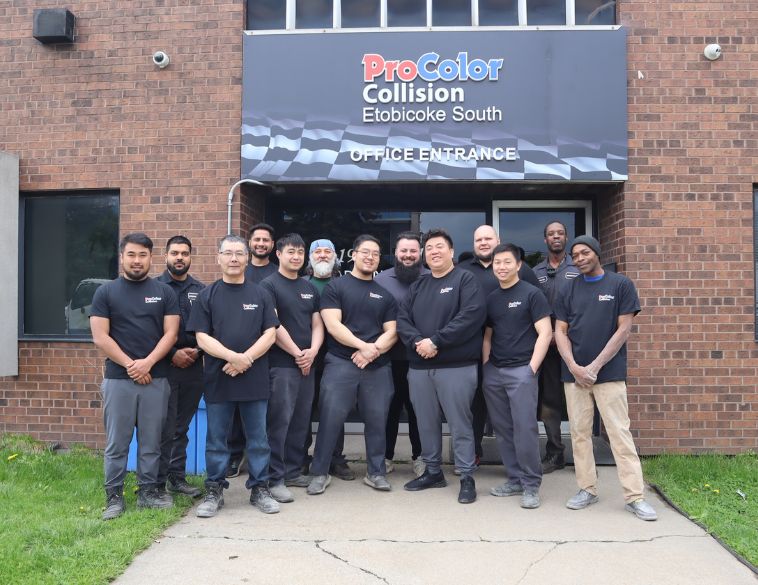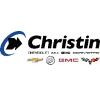Event raises more than $20,000 in support of RMHC.
Following its regional golf tournament, the previous day, Fix Network hosted its 2023 Ontario Regional Meeting on June 14, at the Hilton Mississauga Meadowvale.
A full day of activities were on the table, including keynote sessions in the morning, followed by a networking lunch and trade show as well as workshops on specific brands within the network during the course of the day.
Amin Youssef, Fix Network Regional Vice President for Ontario, welcomed attendees and provided an overview of the day’s activities as well as a sneak peek at Fix Network’s Global Conference which will take place in Orlando, Fla., from October 4-7.
Continuing to evolve
Shaping the Future is a key theme this year, and in looking at how the Canadian automotive landscape has and continues to evolve, Daryll O’Keefe, Fix Network Senior Vice President for Ontario, Atlantic and Western Canada, provided an update from a national perspective. He also noted the importance of training within the organization. O’Keefe discussed the creation of Fix Network’s three training centres across the country, Milton, Ontario, Blainville, Que., and Calgary, Alta., and the vital role they play, not just for franchise partners and the network, but also for the industry as a whole. Training and development at both a regional and national level is hugely important, which is why it’s critical for networks like Fix to work with colleges, training institutions and vendors to ensure a vibrant future for the auto care industry.
O’Keefe said that when it comes to the Canadian automotive landscape, our nation is in a unique position. While heavily influenced by our neighbours to the south, there is also a significant amount of sensibility that reaches us from Europe via the United Kingdom, to which traditionally, Canada has had strong cultural ties.
“This put us [Canada] in a great position for some things, and creates challenges for others,” explained O’Keefe.
He talked about some of the big trends that have emerged over the last decade and are continuing to make an impact. One of them, is consolidation. “When I started some 30 years ago in a paint shop, there were 10,000 collision shops in Canada, today there are 4,838,” he said.
Consolidation has been driven by a number of factors one of which is shop owners reaching retirement age. Yet there are many across Canada that do not have succession plans, especially in smaller markets. There’s also the ongoing issue of technician shortages and not enough new blood coming into the industry. The situation has become particularly acute over the last two years as many collision centres are struggling with capacity issues—i.e. more than enough work available, but not enough people available to take it on.
Even in the mechanical repair sector, many shops are struggling with similar issues, which is why Fix Network continues to work to provide solutions to its members and the industry, including bringing new operators into the fold and helping them grow their businesses as the network continues to expand and solidify its footprint across Canada.
Consolidation and support
Sylvain Seguin, President, Fix Network Canada took to the stage next, and talked a little more about consolidation happening both in Canada and in the U.S. As they look for new locations to acquire, a key factor for consolidators is the ability to have the best, most qualified people join their team and have a standardized approach to business, which makes their business model attractive to insurers.
Seguin noted that while the COVID-19 pandemic disrupted many plans and operating practices across the industry, there has and continues to be a huge amount of resiliency and potential in the independent franchise business model within the auto care sector.
Standardized processes and procedures can be very effective, particularly in an environment where shop capacity is an issue. Seguin noted that Fix Network continues to work hard to help its franchisees deal with this industry-wide challenge, creating an environment where all stakeholders have an active role in continuing to drive business whether it’s through collision, mechanical or glass replacement. “It’s highly crucial we align ourselves in providing an entire range of support for customers and insurance partners. And I strongly believe our franchise business model with independent entrepreneurs will get us where we need to be,” Seguin stated.
Employment trends
Diving deeper into the topic of recruitment, Debbie McCarthy, Fix Network’s Global Vice President of Human Resources discussed employment trends in Canada, and how that’s likely to impact industries such as the auto care sector going forward. She noted that while unemployment is rising at modest rate, a bigger concern over the next few years is a wave of retirements that are expected. This will mean issues such as shop capacity will be even greater, requiring more innovative solutions to fill job postings. “We need to really understand what’s needed to attract new talent to our businesses,” McCarthy explained.
Some strategies include looking at regions of Canada where unemployment rates are trending higher, as well as reaching out to demographic groups that tend to have higher unemployment rates.
McCarthy noted that statistics show that in the coming years, Canada simply won’t have enough homegrown people to support the economy, so looking at immigration is going to be a more critical factor in dealing with ongoing labour shortages —something that Fix Network, globally is actively focused on.
Holly Switzer-Pitts, from OEConnection, provided an overview of the vehicle park and the impact a growing number of EVs are likely to have on collision repairs. Proper repair procedures are essential and following OEM guidelines will ensure that despite the upfront investment required, the outcome will be far more beneficial for everyone—from the collision centre, to the customer, the insurer and the OEM.
EV hazards and opportunities
Sticking with EVs, Martyn Johns, National Director, NAPA AUTO PRO and Emerging Technologies delivered a hard-hitting session on some of the challenges shops face when it comes to repairing EVs. These include working with their high voltage electrical systems and also the fact that those equipped with lithium-ion batteries can catch fire, and when they do—can burn for a very long time, causing a catastrophic amount of damage, not only to the vehicle, but the surrounding environment.
That’s why he said it is critical that service centres and collision shops understand what they’re dealing with and have the training, tools, and procedures in place to be able to repair these vehicles safely and correctly.
Plus, with the Government of Canada’s current EV mandate and more electric vehicles coming from start-ups based overseas, there is a tremendous opportunity for the aftermarket to provide service and parts support for these vehicles in North America, since the OEMs that produce them have neither the resources, nor expertise to do so. And with Canada (at least at the present time) embracing EVs more enthusiastically than our U.S. neighbours, there is a real opportunity for the aftermarket to blaze a trail in providing a robust service/repair and support network for EVs.
A major highlight of the event was the Fix Network Milestone Awards of which the following businesses received recognition for their service.
10 years
- Fix Auto Georgetown
- Fix Auto Kingsville
- Fix Auto Niagara-on-the-Lake
- Fix Auto Ottawa Airport
- Fix Auto Windsor East
- Speedy Auto Service Kitchener
- Speedy Auto Service Sarnia
15 years
- Speedy Auto Service Brampton North
30 years
- Speedy Auto Service London Northeast
40 years
- Speedy Auto Service Hamilton Mountain
- Speedy Auto Service London South
- Speedy Auto Service Toronto St.Clair
45 years
- Speedy Auto Service Timmins
50 years
- Speedy Auto Service Kingston
- Speedy Auto Service Sudbury
55 years
- Speedy Auto Service Burlington
- Speedy Auto Service Ottawa
- Speedy Auto Service Brampton
60 years
- Speedy Auto Service Hamilton
Following the awards, Kendra Hinds, from Ronald McDonald House Charities, discussed Fix Network’s goal of raising $20,000 from the event. By the time the results were tallied—contributions to RMHC from both the Regional Ontario Meeting and the golf tournament the day before had reached $20,862—an impressive result to say the least.
Sponsored content by Fix Network






 BOUCHERVILLE
BOUCHERVILLE Full time
Full time


